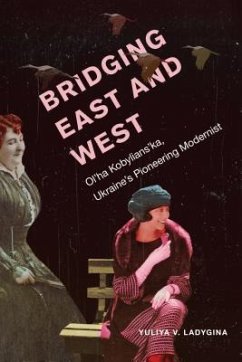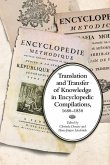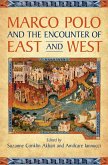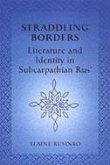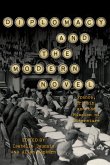Bridging East and West explores the literary evolution of one of Ukraine’s foremost modernist writers, Ol’ha Kobylianska, who was a major contributor in the intellectual debates of her time. Investigating themes of feminism, populism, Nietzscheanism, nationalism, and fascism in her works, this study presents an alternative intellectual genealogy in turn-of-the-century European arts and letters whose implications reach far beyond the field of Ukrainian studies. Rather than repeating various narratives about modernism as a radical response to nineteenth-century bourgeois culture or an aesthetic of fragmentation, this study highlights the fissures and fusions inherent to turn-of-the-century thought. For feminist scholars, Bridging East and West makes accessible a thorough account of a central, yet overlooked, woman writer who served as a model and a contributor within a major cultural tradition. For those working in Victorian studies or comparative fascism and for those interested in Nietzsche and his influence on European intellectuals, Kobylians’ka emerges in this study as an unlikely, but no less active, trailblazer in the social and aesthetic theories that would define European debates about culture, science, and politics in the first half of the twentieth century. For those interested in questions of transnationalism and intersectionality, this study’s discussion of Kobylians’ka’s hybrid cultural identity and philosophical program exemplifies cultural interchange and irreducible complexities of cultural identity.
Hinweis: Dieser Artikel kann nur an eine deutsche Lieferadresse ausgeliefert werden.
Hinweis: Dieser Artikel kann nur an eine deutsche Lieferadresse ausgeliefert werden.

